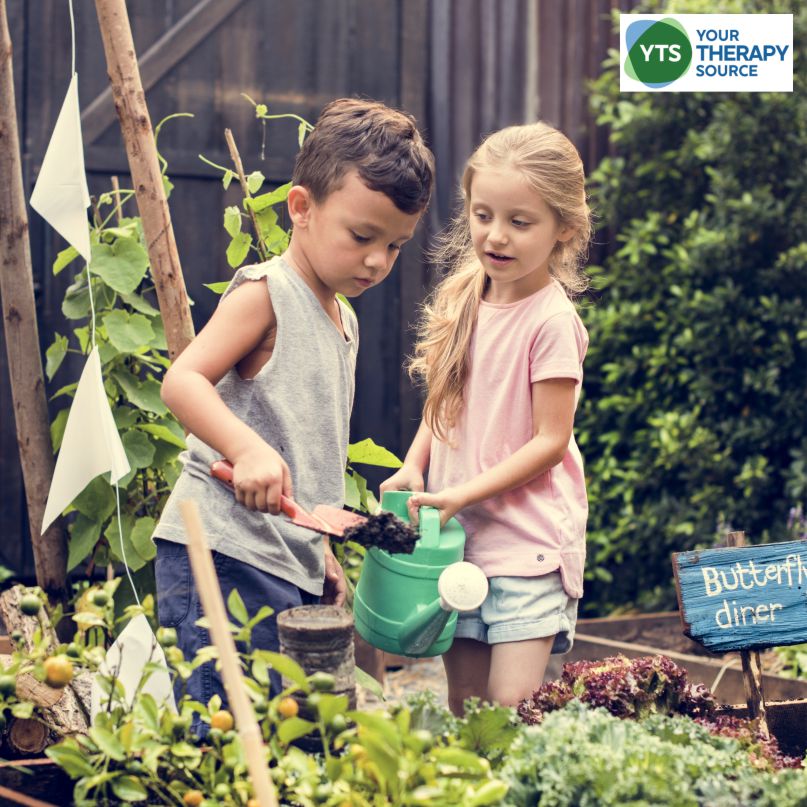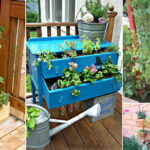The Interconnection of Nature and Child Development
In contemporary education and childcare paradigms, the focus on holistic child development is gaining traction. As the digital age increasingly envelops daily life, the natural world often recedes from the forefront of a child’s experiential landscape. However, gardening emerges as a quintessential activity that not only reconnects children with nature but also catalyzes multidimensional growth. Scientific evidence substantiates that engaging with gardening fosters cognitive, emotional, and social development in children, creating a tapestry of benefits that extend far beyond the act of planting a seed.
Cognitive Enrichment through Horticultural Engagement
Gardening serves as a fertile ground for cognitive development. When children participate in gardening, they embark on a multi-sensory journey through the processes of observation, exploration, and experimentation. The act of nurturing plants necessitates critical thinking, as children must diagnose issues related to growth, pests, and environmental conditions. This mindful engagement encourages problem-solving skills—making decisions such as when to water, when to harvest, and how to adapt to changing weather patterns.
Furthermore, gardening can significantly enhance children’s literacy and numeracy abilities. The task of reading seed packets, understanding planting diagrams, and calculating space requirements for optimal growth constitutes a practical application of academic skills. As children measure planting depth or count the number of seeds, they effortlessly integrate mathematical concepts into their gardening activity, fostering an intuitive grasp of these principles. Studies have indicated notable improvements in both math and reading scores for children who engage in gardening programs, illuminating the potential of hands-on learning in reinforcing traditional curricula (Wood et al., 2017).
Moreover, exposure to the complexities of ecological systems cultivates a nuanced understanding of biology and environmental science. Children learn about plant life cycles, photosynthesis, and the interdependence of organisms within their ecosystem. These elements not only stimulate intellectual curiosity but also lay the groundwork for a generation that is informed and proactive regarding environmental stewardship.
Emotional Intelligence and Well-Being Nurtured Through Soil
The therapeutic benefits of gardening extend into the realm of emotional health. Interacting with the natural world provides an outlet for self-expression and creativity. Children engage in planning their gardens, selecting plants based on personal preferences, and designing spaces that reflect their individuality. This autonomy fosters a sense of ownership and pride, enhancing self-esteem and self-worth.
Gardening also functions as a practical modality for stress relief. The act of tending to plants can dissipate anxiety and cultivate mindfulness. Research has illustrated that engaging in gardening reduces cortisol levels (the stress hormone) while promoting a sense of tranquility and well-being. As children navigate the rhythm of nature, they can find solace in its predictability amidst the chaos of modern life, leading to improved emotional regulation and resilience (Kaplan & Kaplan, 1989).
In addition, the cyclical nature of gardening imbues children with lessons about patience and perseverance. Witnessing the gradual growth of plants teaches the value of delayed gratification—an increasingly rare quality in a culture that prioritizes immediate results. This understanding reinforces a foundational aspect of emotional intelligence, equipping children to handle life’s challenges with grace and perspective.
Social Skills Cultivated Through Collaborative Gardening
The communal aspect of gardening presents children with opportunities for social interaction, collaboration, and teamwork. Whether working alongside peers, family members, or community volunteers, children learn to communicate effectively and navigate social dynamics. These collaborative gardening experiences can enhance a child’s ability to empathize and negotiate, traits that are critical for developing meaningful relationships later in life.
Additionally, gardening fosters a sense of inclusion and belonging. In cultivating a shared space, children become part of a collective project—progressing together toward a common goal. This sense of community contributions and cooperativity has been shown to enhance peer relationships and reduce feelings of isolation, particularly for children who may struggle with social interactions (Sullivan et al., 2013).
The practice of gardening can also serve as a platform for intergenerational connections. Engaging with grandparents or other older figures in the community who possess gardening knowledge offers children insights into traditions, cultural heritage, and wisdom that transcends generations. This bonding experience enriches family ties and enhances socialization skills, deepening children’s appreciation for diverse perspectives and life experiences.
Environmental Awareness: Cultivating Future Advocates
In a world grappling with environmental challenges, gardening empowers children to become proactive advocates for sustainability. Through direct involvement with plants, soil, and ecosystems, children develop a profound appreciation for biodiversity and the intricate balance of life. This intimate relationship with nature engenders a sense of responsibility toward the environment, fostering stewardship behaviors that can persist into adulthood.
Educational gardening programs have been designed with environmental education as a core component, inviting children to explore topics such as composting, permaculture, and organic farming. These workshops cultivate eco-conscious citizens who are equipped with the knowledge and skills necessary to engage in sustainable practices that contribute to the well-being of the planet. Research has shown that children who participate in environmental education initiatives are more likely to exhibit pro-environmental attitudes and behaviors than their peers who do not engage in such programs (Hwang, 2014).
As children witness firsthand the impact of their gardening efforts—seeing the fruits of their labor in the form of vegetables or flowers—they develop a visceral connection to the environment. This connection inspires a generation that is not only aware of ecological issues but also motivated to enact change, whether through advocacy, activism, or personal lifestyle choices that prioritize sustainability.
Conclusion: A Garden of Opportunities
Gardening is far more than a recreational activity; it is a powerful pedagogical tool that enriches child development across multiple domains. From enhancing cognitive abilities and emotional intelligence to fostering social connections and environmental stewardship, the multifaceted benefits of gardening are undeniable. As communities increasingly recognize the value of engaging children with the natural world, the act of cultivating a garden becomes a catalyst for nurturing well-rounded individuals—laying the groundwork for a future generation equipped to thrive in harmony with both themselves and the environment. In essence, every seed sown is a step towards comprehensive growth—a profound reminder of the intricate connections that bind humanity and nature together.









Leave a Comment